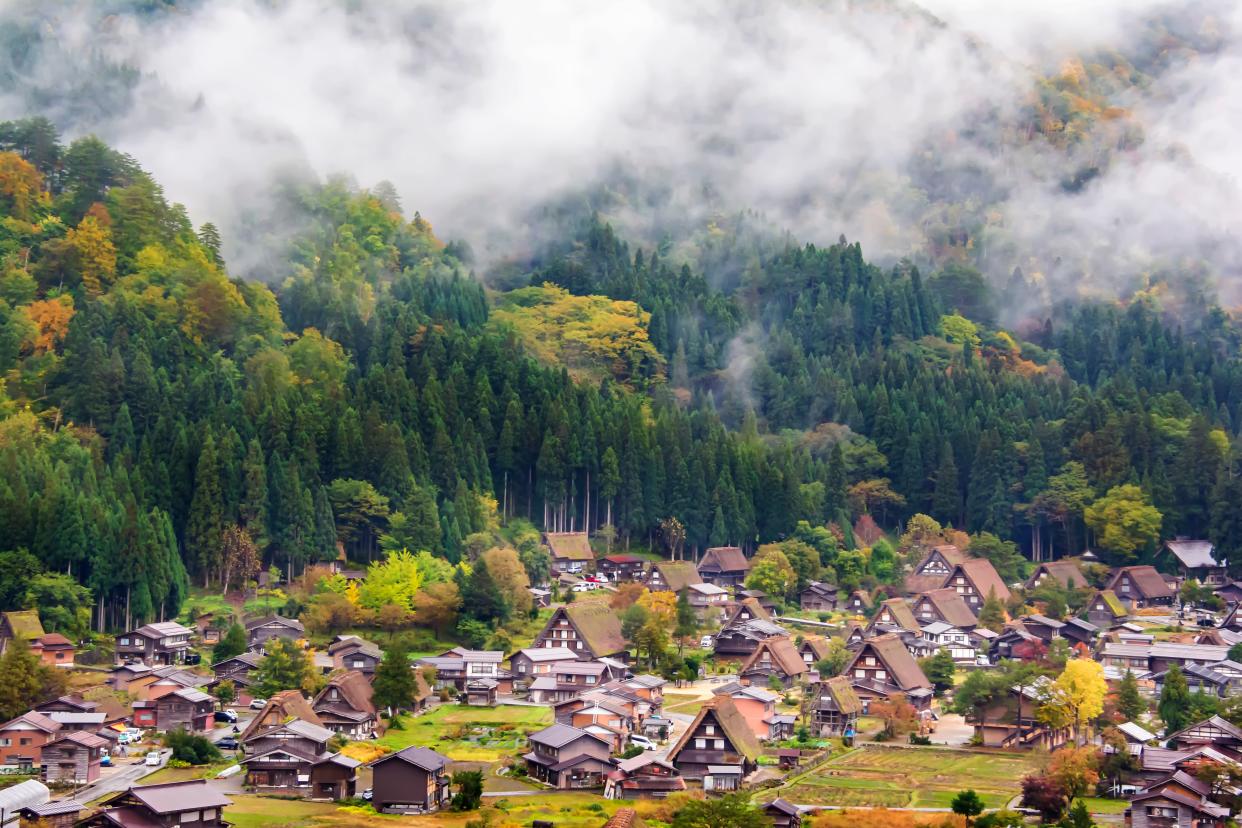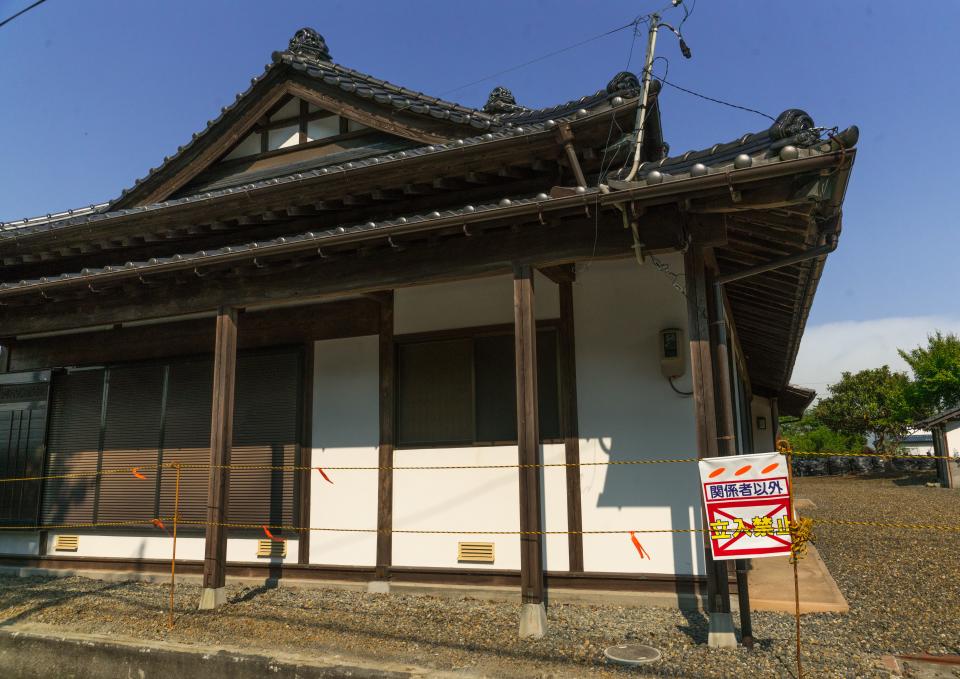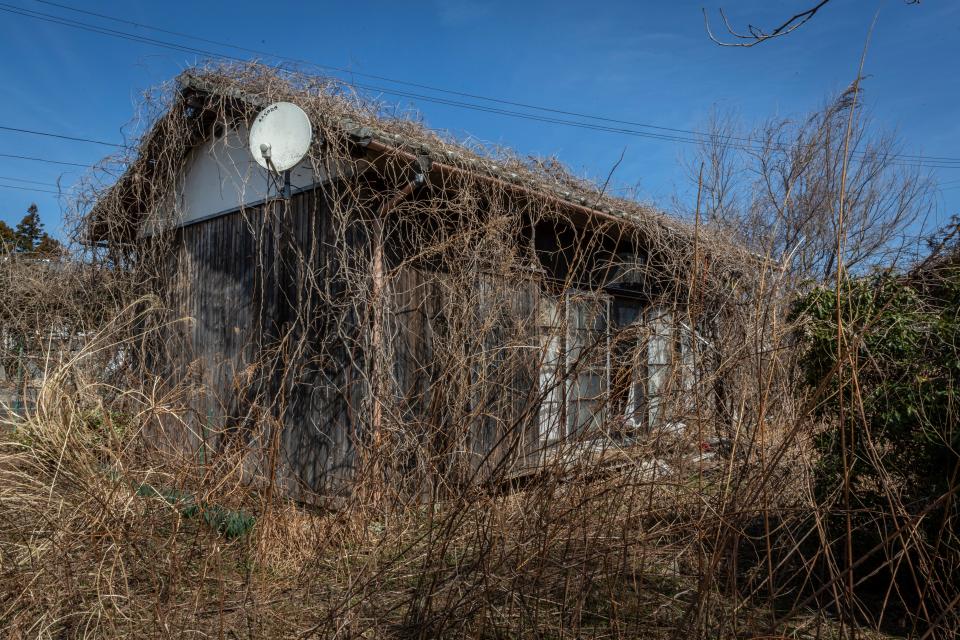Unpacking Akiya: The Millions of Empty Houses in Japan

Photo: Kriangkrai Thitimakorn/Getty Images
In the pursuit of homeownership, Americans are flocking to rural Japan, where an abundance of empty houses, known as akiya, sit with shockingly low price tags. Dotted mostly throughout the country’s farmland, millions of these homes have been left abandoned for years, and a recent push to revitalize rural areas means they’re being auctioned or sold for cheap, reports The New York Times. “They are cheap because many people in Japan are conditioned to believe that older homes have no value,” Shu Matsuo Post, who bought an akiya and is the founder Post FI, tells AD. “Most people want to build a new home.”

Abandoned house in the highly contaminated area after the daiichi nuclear power plant irradiation, Fukushima prefecture, Naraha, Japan
Why are there so many cheap, empty houses in Japan?
Many of theses houses have been left for different reasons, though the catalyst is often the death of the original owner. Sometimes an heir refuses to accept the home that their families left behind. Others do not name an inheritor, or relatives who have been passed the home don’t need it but don’t want to sell family land out of respect. In any situation, the result is often the same: an empty house left to sit and deteriorate. “These properties are becoming increasingly common due to factors such as urbanization, aging populations, and changing family structures,” Matsuo Post adds.
Still, as local governments have been increasingly emphasizing, abandoned homes can impact scenery and can be dangerous if they collapse. Though many municipalities have put new taxes in place to incentivize owners to either demolish or maintain homes, a decreasing Japanese population has left many akiya unclaimed. When this happens, the government takes ownership and looks to auction off or sell the home, often for little money.
Can foreigners buy akiya in Japan?
Anyone can buy akiya, and the prospect is becoming particularly attractive to American citizens. “Anyone can buy real estate in Japan, regardless of their nationality,” Matsuo Post confirms. Matthew Ketchum, a cofounder of Akiya & Inaka, a real estate company that specializes in akiya deals, told The New York Times that a majority of international clients are now coming from the United States, a significant uptick from when the firm first opened in 2020.
However, as Matsuo Post adds, “Getting a mortgage from a Japan-based bank is nearly impossible as a non-resident. So non-resident foreigners basically need to buy akiya (or real estate) in cash.”
How much do akiya cost?
The cost of akiya varies depending on a number of factors, such as location, condition, and size. “I bought my first akiya at the end of 2023. It was a very distressed abandoned house in a great location in Minami-ku, Yokohama,” Matsuo Post says. “I renovated it and am now in process of renting it out to a long-term tenant.” He paid five million yen, or about $32,000, for the property and put around $13,000 into renovations (two million yen).
Others who buy akiya look to live in them full-time. Jaya Thursfield, an Australian software engineer, and his Japanese-born wife, Chihiro, spoke with The New York Times about buying an akiya for $23,000. They purchased the residence in 2019, then spent the next few years renovating it. Another homeowner who spoke with the Times said he acquired his home for $1,800 in 1973—though he’s put in about $700,000 in the years since to maintain it, about half of which has come from municipal grants.

Japan Prepares For The 10th Anniversary Of The Tohoku Earthquake And Tsunami
How do you buy an akiya?
To help coordinate buyers with properties, municipalities across Japan have started web pages, known as akiya banks, where listings are compiled. Even so, some in the private sector don’t think these government-run solutions adequately assist interested buyers and have started their own firms, such as Akiya & Inaka, to facilitate transactions.
“The real estate buying process in Japan is quite simple, as long as you understand Japanese,” Matsuo Post adds. “If you don’t speak the language, I highly suggest working with someone who can guide you through the process from start to finish.”
Originally Appeared on Architectural Digest
More Great Stories From AD
The Story Behind the Many Ghost Towns of Abandoned Mansions Across China
Inside Emily Blunt and John Krasinski’s Homes Through the Years
Take an Exclusive First Look at Shea McGee’s Remodel of Her Own Home
Modular Homes: Everything You Need to Know About Going Prefab
Beautiful Pantry Inspiration We’re Bookmarking From AD PRO Directory Designers
Not a subscriber? Join AD for print and digital access now.
Browse the AD PRO Directory to find an AD-approved design expert for your next project.

